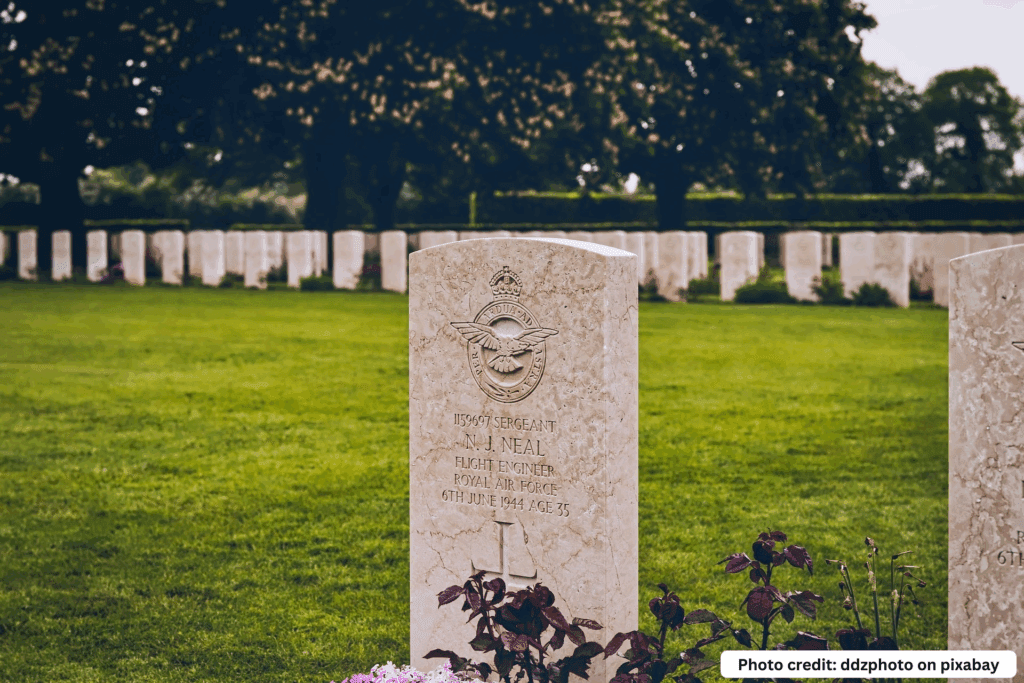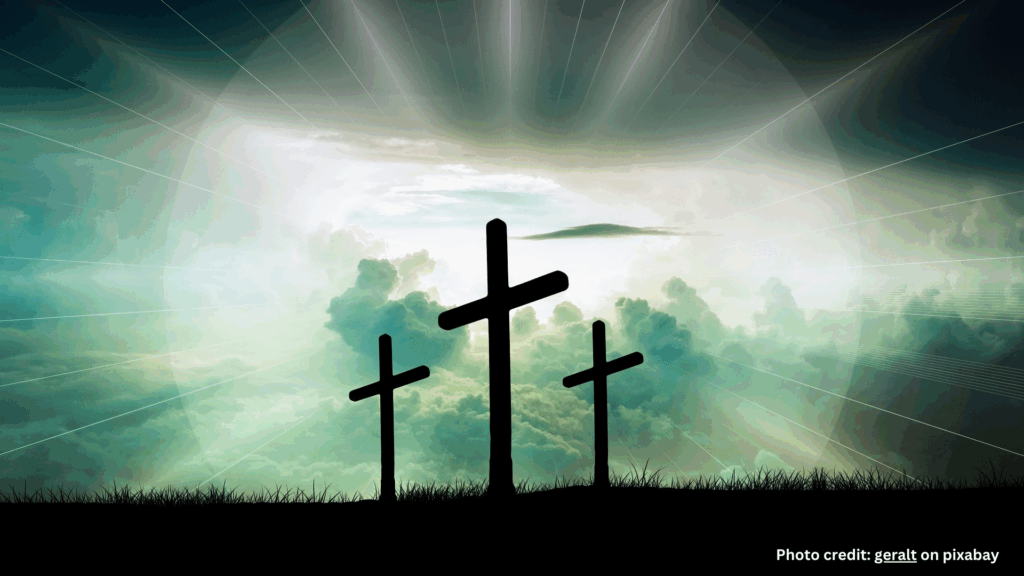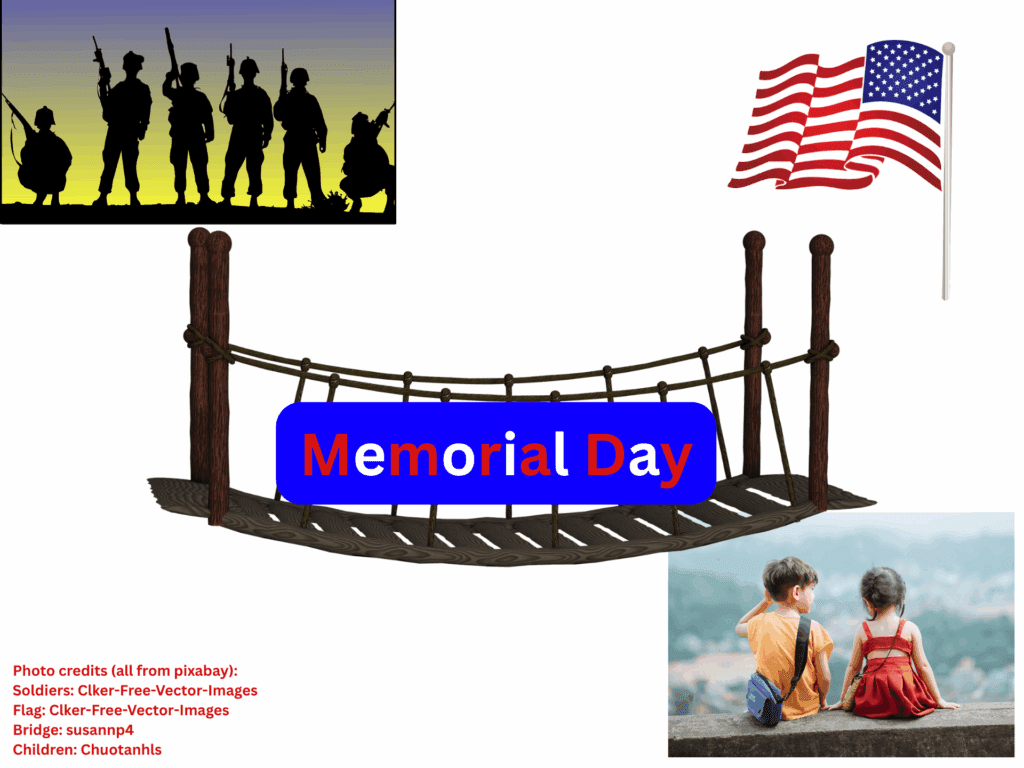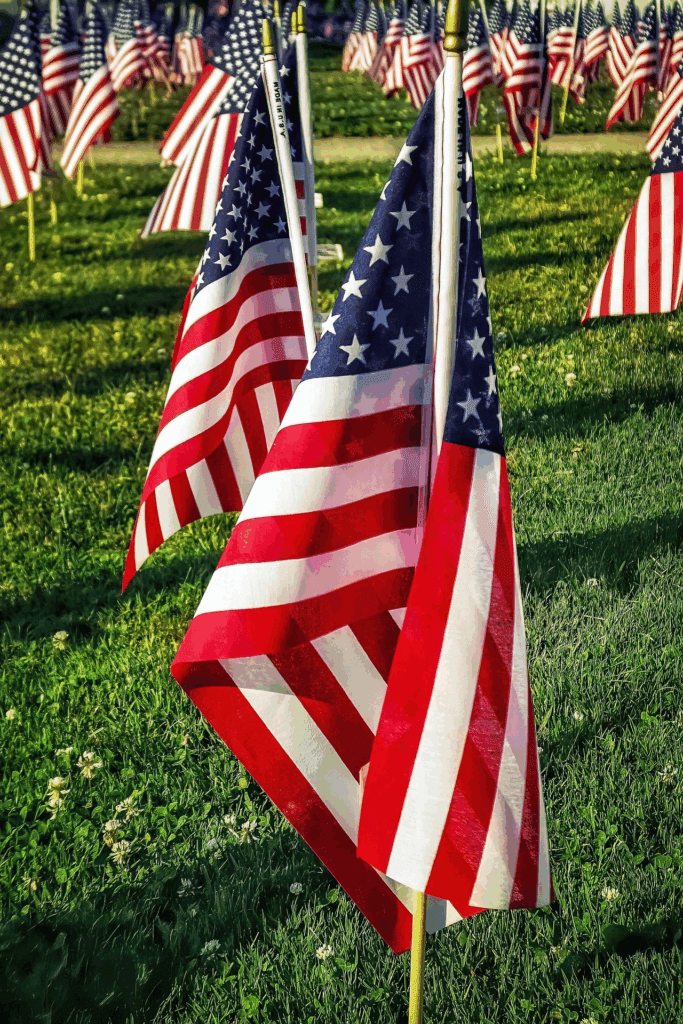Every Memorial Day, we gather at cemeteries adorned with flags, pause for moments of silence, and speak of heroes. But there’s something deeper at work in these rituals than we might realize—something as ancient as humanity itself.
Anchors of Memory
In the Old Testament, after the Israelites crossed the Jordan River into the Promised Land, God commanded Joshua to do something unusual. He told him to take twelve stones from the riverbed—one for each tribe—and stack them as a memorial. “When your children ask in time to come, ‘What do these stones mean to you?’ then you shall tell them…” (Joshua 4:21-22).

The stones weren’t just markers of geography. They were anchors of memory.
Today, our Memorial Day traditions serve a similar purpose. The flags planted in neat rows, the wreaths laid with trembling hands, the names etched in granite—these are our stones of remembrance. But unlike Joshua’s memorial, which celebrated God’s deliverance, our stones mark something more complex: the terrible cost of freedom and the weight of sacrifice.
Bridges Between Generations
What strikes me most about Joshua’s memorial is not what it commemorated, but who it was meant to instruct. “When your children ask…” The stones were placed not for those who witnessed the miracle, but for generations who would inherit its benefits without experiencing its cost. The memorial was a bridge between those who remembered and those who might forget.
This is where Memorial Day transcends patriotic duty and becomes something sacred. We remember not just for ourselves, but for children who will never know the weight of a folded flag or the silence that follows taps. We tell stories not because we enjoy tragedy, but because some truths are too important to lose to time.
The Sacred Responsibility of Memory

The biblical principle is clear: memory is a responsibility, not just a sentiment. When we forget our foundations—whether spiritual or national—we risk losing our way entirely. The Israelites were repeatedly warned about this: “Take care lest you forget the Lord your God” (Deuteronomy 8:11). Forgetting led to wandering. Remembering led to purpose.
But here’s what makes Memorial Day uniquely profound: we’re not just remembering victories, we’re remembering sacrifice. This aligns with perhaps the most central truth of Christian faith—that freedom comes through sacrifice, that life emerges from death, that love is proven not in words but in costly action.
The Ultimate Expression of Love
“Greater love has no one than this, that someone lay down his life for his friends” (John 15:13). Every name on every memorial wall represents this ultimate expression of love—not abstract or theoretical, but concrete and final.
So this Memorial Day, as we stand before our stones of remembrance, we do more than honor the dead. We accept the sacred responsibility of memory. We become the bridge between sacrifice and freedom, between the cost paid and the life lived, between those who gave everything and those who inherited it all.
The stones are waiting. The children are asking. And the answer we give shapes not just their understanding of the past, but their vision for the future.

***
Here are links to my blog indexes, which will make it quick and easy for you to find another post to read.
∙ Blogs with a Spiritual Theme
∙ Blogs about Books I Like: Fiction
∙ Blogs about Books I Like: Nonfiction
∙ Blogs for Holidays and Other Special Days
∙ Miscellaneous Blogs

